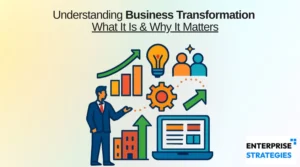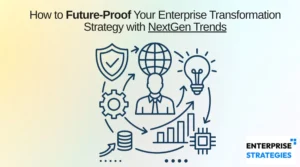“Leadership and learning are indispensable to each other.”
– John Fitzgerald Kennedy
C-Suite executives can put their stamp of approval on the implementation of enterprise social networks. They can praise the importance of usage and collaborative knowledge sharing in their monthly departmental meetings. They can even set a required amount of posts and shares. However, if they themselves are not actively present and visible on these social tools, attempts to rally employees and managers around a new platform for communication will be null and void. As with any business initiative, support from senior leaders in the company is essential to ensuring long-term adoption and usage.
Motivational posters with phrases like “lead by example” wallpaper offices. Execs can talk the talk, but can they walk the walk? Some leaders often choose not to interact on enterprise social networks. Is it because they don’t have the education and resources to properly use the tool? Is it that they don’t see the business value? Do they not know where to start? Or do they think it requires too much time from their already overbooked schedules?
While not all senior leaders are reluctant or unwilling to participate, some are failing to set a social example and as a result employees do not place a high priority on communicating, collaborating, or sharing on enterprise social tools. For those individuals already collaborating on the company’s enterprise social tools, they know that it does not take significant time, especially when it replaces outdated tools and processes. If you are, in fact, one of the executives that does not see the business value of an enterprise social network, you have to engage consistently to see it.
[vc_separator type=’transparent’ position=’center’ color=” thickness=’10’ up=” down=”]
 Free Download: Top 5 Reasons Enterprise Social Initiatives Fail
Free Download: Top 5 Reasons Enterprise Social Initiatives Fail
[vc_separator type=’transparent’ position=’center’ color=” thickness=’10’ up=” down=”]
In this download, you will find the following information:
- The most common reasons enterprise social initiatives fail and what you can do to avoid them
- Enterprise social initiative best practices
- What we have learned from delivering several successful enterprise social initiatives at our clients
[vc_separator type=’transparent’ position=’center’ color=” thickness=’10’ up=” down=”]
[button size=” style=” text=’Get Your Free Download’ icon=” icon_color=” link=’/free-e-book-top-5-reasons-social-enterprises-fail/’ target=’_self’ color=” hover_color=” border_color=” hover_border_color=” background_color=” hover_background_color=” font_style=” font_weight=” text_align=” margin=”]
[vc_separator type=’transparent’ position=’center’ color=” thickness=’30’ up=” down=”]
The Value Of An Enterprise Social Network
When initially establishing footing on a new collaborative social tool, executives don’t necessarily have to be the ones curating and creating new posts and information (especially when pressed for time). “Liking” posts by employees and managers or even contributing a short response or acknowledgment to a post is an excellent, quick, and simple way to give realtime feedback. This also provides the opportunity for executives to answer questions, allowing everyone to see the answer, reducing the amount of repetitive conversations.
Everyone likes to be recognized for their expertise, for going the extra mile on a project or closing a hard deal. An enterprise social network is a great avenue for C-Suite executives to endorse and praise accomplishments. That being said, it doesn’t have to necessarily be business related either. Wishing staff good luck on an upcoming marathon, congratulating an employee on a new family member, or showcasing staff volunteering together are all great ways to increase community and camaraderie throughout an organization.
It should also be noted that these conversations, posted feedback, and “likes” don’t exclusively have to be from a desktop or laptop that is stationary in executives corner offices. The great thing about the majority of enterprise social networks is that they have a mobile feature. While undoubtably senior executives have a busy schedule, having a mobile feature on your network allows for more flexibility in responding and posting messages on the go. Whether it is on train during the commute into the city, waiting for a meeting to start, or while riding in the elevator, being available and able to respond to queries or share and access the most up to date document is invaluable.
To see previous posts in the series 5 Reason Enterprise Social Initiatives Fail click below:
Context, Key To Enterprise Social Success (a.k.a. Why most social initiatives fail)
Show Me The Money: One Reason For Enterprise Social Failure
The Importance Of An Enterprise Social Strategy: Are You Driving Blind Through Social?




